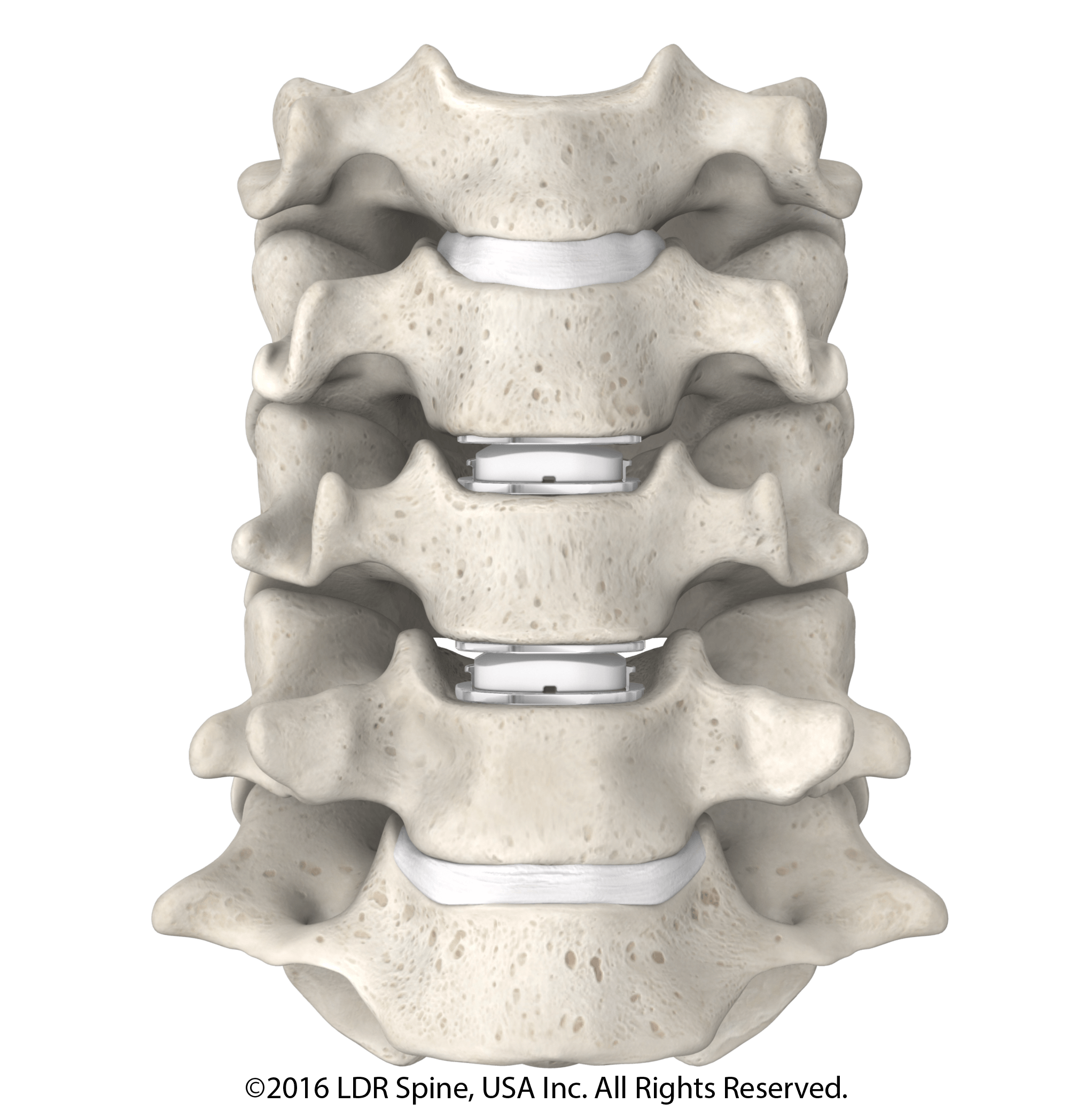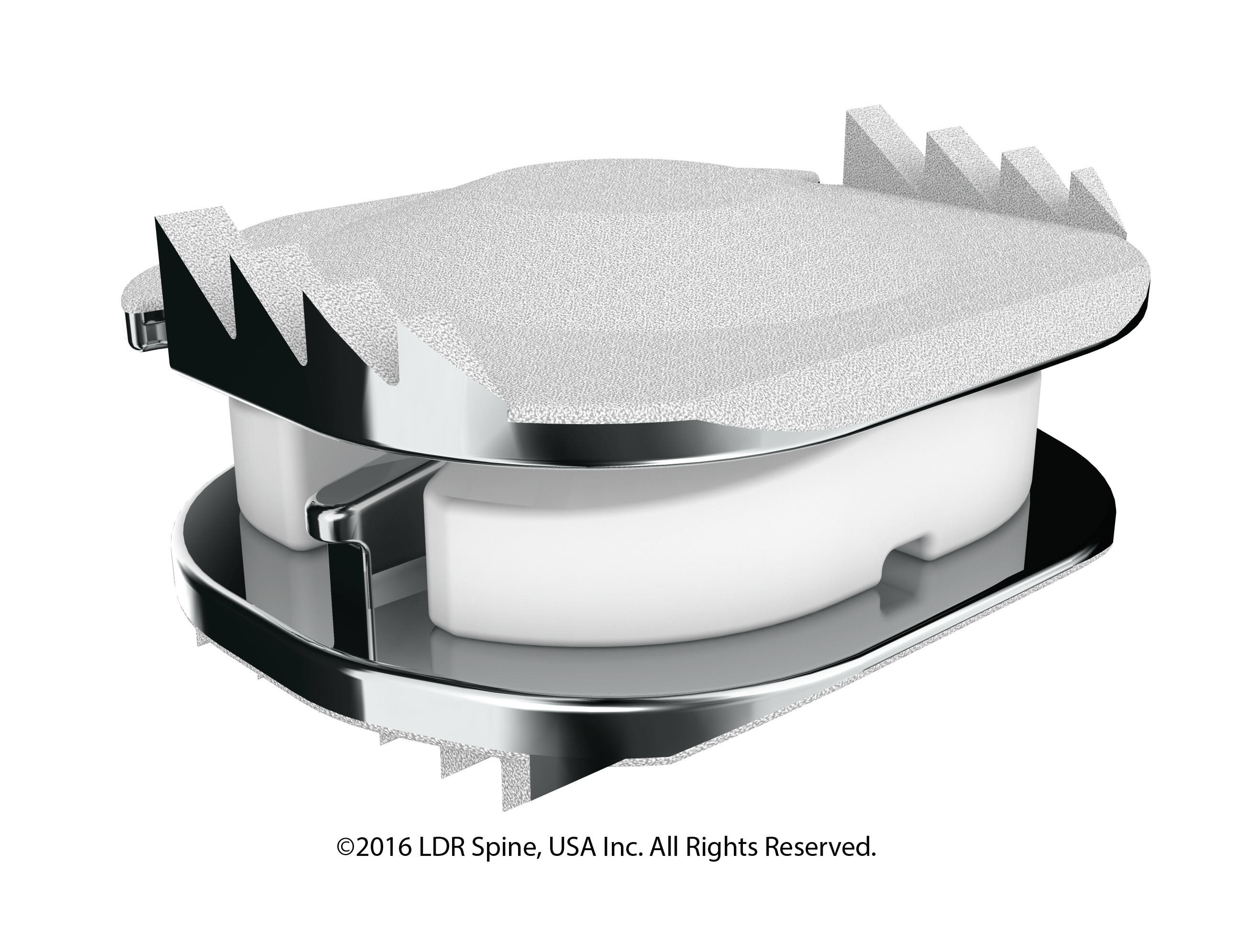Degenerated or damaged spinal discs can cause a range of painful back and neck problems, which sometimes don’t respond to conservative treatment approaches. If you need a disc replacement, Louis Nkrumah, MD, PhD, at Nkrumah Neurosurgery & Spine in Lake Success, New York, is an exceptionally skilled neurosurgeon who specializes in carrying out disc replacements in the neck and lower back using the latest techniques and advanced artificial discs. Find out more by calling the office today or booking an appointment online.

What is disc replacement surgery?
Disc replacement surgery involves removing damaged or worn discs from between your vertebrae and replacing them with artificial discs. Spinal discs are protective pads that have a tough outer layer and a jelly-like inside. They sit between each vertebra, cushioning the bones and preventing injury. If the discs are damaged or start to deteriorate, they can put pressure on nearby nerves or the spinal cord, causing pain and altered sensation, and affecting movement. The benefit of disc replacement surgery over spinal fusion, which is an alternative treatment approach for the same kinds of conditions, is that the artificial discs give you a better range of movement than is possible with fusion.
Why would I need a disc replacement?
If you have a back or neck condition, in most cases, you would start your treatment with conservative approaches such as physical therapy and steroid injections. These are effective for most patients, but for some, conservative treatments don’t relieve their pain or improve mobility. If this is the case, then surgery might help. Disc replacement surgery is effective in treating several conditions that develop because of damage or deterioration of the discs, including:
Degenerative disc disease
With advancing age, the spinal discs start to dry out, becoming more flat, harder, and less effective.
Herniated discs
Herniated discs are ones where the jelly-like inside pushes through a weak spot in the outer layer of the disc.
Spondylolisthesis
Spondylolisthesis is a condition where one vertebra slides over the top of the vertebra below it because the discs are deteriorating.
Spinal stenosis
Spinal stenosis can develop from severe degenerative disc disease, herniated discs, or spondylolisthesis, which cause a narrowing of the spinal canal and put pressure on the nerves.
Am I a candidate for disc replacement?
Before recommending disc replacement surgery, Dr. Nkrumah needs to be sure you’re a suitable candidate, and determine if surgery is the best option. To achieve this, he carries out a thorough physical exam, runs diagnostic imaging tests, and reviews your previous treatments. To undergo disc replacement surgery, you need to have a general anesthetic. Lumbar disc replacement surgery typically takes 2-3 hours and is carried out through an incision in your abdomen, so Dr. Nkrumah can reach your spine without interfering with the nerves. To find out whether you’re a suitable candidate for disc replacement surgery, call Nkrumah Neurosurgery & Spine today or book an appointment online.
Cervical Disc Replacement
A disc replacement procedure is an inpatient or outpatient surgical option instead of fusion where:
- The bulging disc is removed and the neural structures are relieved from pressure and pain
- A disc replacement device is placed in the disc space that restores and maintains disc height, while allowing natural neck motion to continue

Disc replacement has been used for more than 20 years globally with proven clinical results. Disc replacement is designed to maintain normal cervical spine biomechanics and has demonstrated certain clinical advantages over fusion.

If six weeks of conservative care have not relieved symptoms, Dr. Nkrumah may recommend the Mobi-C® Cervical Disc for skeletally mature patients.
This technology is designed for reconstruction of the disc from C3-C7 within one or two contiguous levels.







